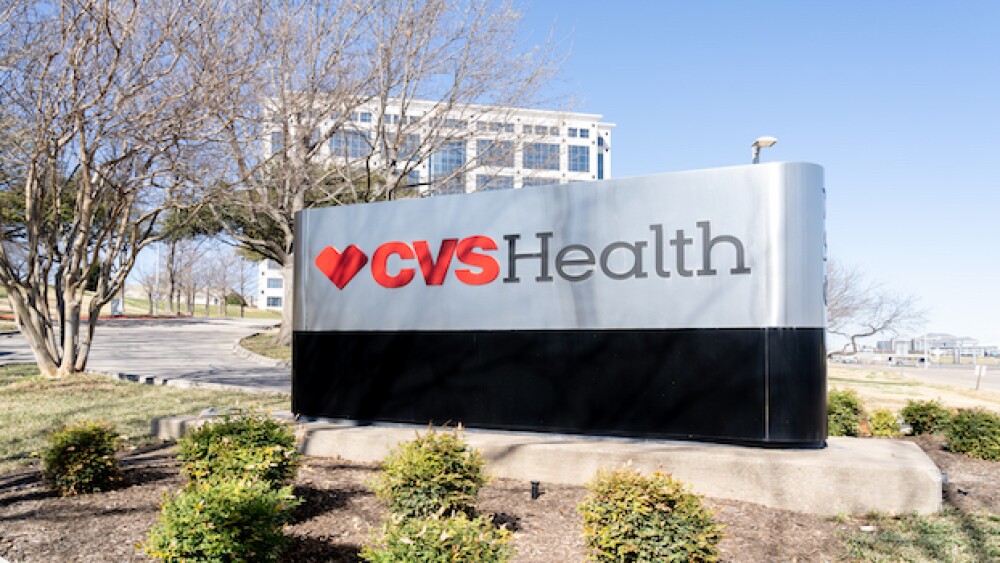The consumer healthcare brand is joining the growing biosimilars market in the U.S. with its new subsidiary Cordavis, which will market a Humira biosimilar as its first product.
Pictured: CVS Health at its corporate office in Texas/iStock, JHVEPhoto
Consumer healthcare brand CVS Health on Wednesday launched Cordavis, a wholly owned subsidiary focused on the growing U.S. biosimilars market that will work directly with manufacturers.
Working with manufacturing companies, Cordavis plans to co-develop and commercialize FDA-approved and high-quality biosimilar products to the U.S. market. CVS Health will also leverage Cordavis to develop a robust portfolio of biosimilars to promote widespread access to these medicines and in turn, “creating more competition that drives down prices,” the company said in Wednesday’s announcement.
For its first product, Cordavis will partner with Sandoz—the generics division of the Swiss pharmaceutical giant Novartis—to market Hyrimoz (adalimumab-adaz), a biosimilar of AbbVie’s arthritis medicine Humira. Cordavis expects to price Hyrimoz at least 80% lower than the current list price of its branded counterpart.
Humira, a blockbuster monoclonal antibody, won its first approval in 2002 for rheumatoid arthritis. In subsequent years, the biologic medicine also picked up regulatory wins in psoriatic arthritis, plaque psoriasis and Crohn’s Disease. According to medicine information platform Drugs.com, Humira goes for approximately $7,300 for two kits of its 40-mg dose and nearly $15,000 for two kits of its 80-mg dose.
Cordavis will “help ensure sufficient supply of biosimilars in the U.S.,” CVS Health CFO Shawn Guertin said in a statement, adding that the subsidiary’s entry into the biosimilar space will also ultimately improve health outcomes and reduce treatment costs for consumers.
Unlike small molecule drugs, biologic therapies are much more complex and difficult to replicate exactly. Medicines that are highly similar and show no meaningful clinical difference from these biologics are called biosimilars.
A recent study from the University of Southern California’s Leonard D. Schaeffer Center for Health Policy & Economics found that biosimilars promote healthy market competition and help lower the overall cost of treatments.
With its patent protections already eroding, Humira has become a prime target for emerging biosimilar competition. The first wave came in January 2023, when Amgen introduced Amjevita (adalimumab-atto) to the U.S. market. Last month, there were several more entrants including Celltrion’s Yuflyma (adalimumab-aaty), Organon’s Hadlima (adalimumab-bwwd) and Boehringer Ingelheim’s Cyltezo (adalimumab-adbm).
Hyrimoz also launched last month and is being offered under Sandoz’s One Source program, designed to provide patients with educational and reimbursement support.
AbbVie has already started feeling the squeeze from all the new competition. Last year, Humira suffered 22% lower sales as compared with 2021, with AbbVie projecting even larger losses to biosimilar erosion. During the first quarter of 2023, Humira’s global revenues were down 25%.
Tristan Manalac is an independent science writer based in Metro Manila, Philippines. He can be reached at tristan@tristanmanalac.com or tristan.manalac@biospace.com.






